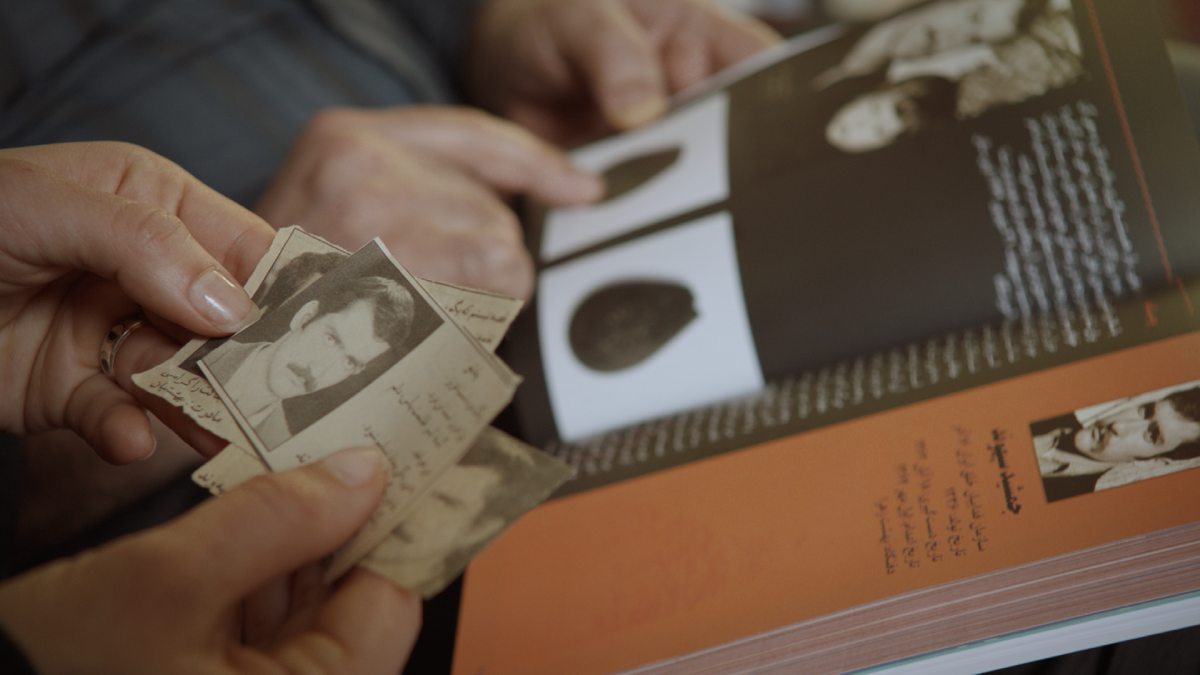Protests in Iran have been happening for over a month now. They were originally sparked by the death in custody of Mahsa Amini, a 22-year-old Kurdish Iranian woman who had been detained by morality police. The protests seem to have spread also to Iran’s Evin Prison, the infamous political prison where detainees have been regularly threatened with torture and indefinite imprisonment while undergoing gruelling interrogations and being denied medical care.
Evin is a name that I am very familiar with — one of the most extraordinary moments I had as a journalist involved a life that started inside that prison. So let me tell you that story.
A Match Made In Evin
Back in November 2019, an email arrived in my inbox with the subject line “I am born in Evin”.
Two days previous, I had published a story about Iranian-born actor and director Maryam Zaree’s struggle to discover the circumstances of her birth in Evin, Iran’s most notorious political prison, despite her mother’s refusal to talk about the past.
Zaree’s film was perfect for my area of expertise: a child’s first 1,000 days are fundamental — even if, like Zaree, one has no recollection of them. The film also explored how memory was not just personal, but also political. In Zaree’s case, her personal memories – or lack of them – are very much a result of Iran’s political situation and her parents’ trauma.
So when an email with the word “Evin” hit my inbox, I first thought it was spam. It was in Dutch, but I managed to decipher it with Google Translate: “I too was born in Evin in Tehran, in January 1984. Both my parents have also been detained for years and survived the mass executions of 1988.”
“I’m not sure why I want to get in touch with you, but your article has released something so huge in me that I had to. I now write to you with big eyes and somewhat embarrassed. I myself have never met another child born there. Most didn’t survive it, I always understood. Those who did do not talk about it.”
(Yasaman was right. Zaree worked on the documentary for five years, and she could only get one person, writer Sahar Delijani, to go on the record about her own experience.)
The email was from Yasaman (or Yasmijn, as people in the Netherlands started calling her). I couldn’t believe that right there in my inbox was another person born in Evin Prison willing to share her story.
I have been a journalist since 2004, mostly working as a foreign correspondent, translating faraway lands for people who could not experience them directly. While I often thought of the people reading what I was writing, or watching what I was filming, I rarely received the amount of immediate feedback I’ve had since I started writing about early childhood and carers.
Since launching this newsletter in January 2021, I have been doing “memberful reporting”, asking members and other readers of my pieces for feedback, getting them to copy-edit my work, as well as using their input for some original reporting.
Born in Evin
But Yasaman’s email belonged to an entirely different category. She was telling me that I had touched her life with something I had written. She told me that she would attend a film screening of Born in Evin in Amsterdam, where Zaree and I would be holding a Q&A. She had already bought tickets, but still hadn’t told her mother.
Before the film, I was nervous. I couldn’t pick Yasaman and her mother out in the crowd. During the screening, there were emotional moments when I wondered whether Yasaman was there and listened for someone crying. By the time it came to answer questions, I had given up on the idea of her being in the audience.
A hand went up, then another one. Then I noticed a young woman to my right, and an older woman next to her. The younger one raised her hand. When I approached her to give her the mic, I knew this was Yasaman.
She took the mic, and her voice cracked. She told the audience what she had never said publicly before: she was also born in Evin. She thanked Zaree for the film and burst into tears. Zaree approached her, and they hugged.
Her mother explained how scared she was after Yasaman’s birth when the guards took her daughter away. They handed her back a few hours later, but Yasaman would not breastfeed. The guards refused to give the baby any formula for days. Yasaman’s mother was worried the baby would not survive.
A few days later, I met up with Yasaman in the art atelier where she works in Amsterdam. She is a lawyer but is soul-searching at the moment. “This story was life-changing for me,” she said. Watching the film made her aware of why she studied law, and what she should be doing next.
“I need to make sure there is justice in Iran. Those women like my mother should have not been there in prison. It was an abuse. I should have not been born there.”
Thanks to Yasaman, I realised no story is too small to tell. And if one story can move one person to rethink their life, and even prompt them into action, that is all that matters. That is why I will keep writing.
A previous version of this article was originally published in December 2019.
With love and care,
Irene
📣 The First 1,000 Days is edited by community member and friend, Shaun Lavelle.
Photo credits and alt-text: Still from the film Born in Evin, hand holding a black and white photo.
…
